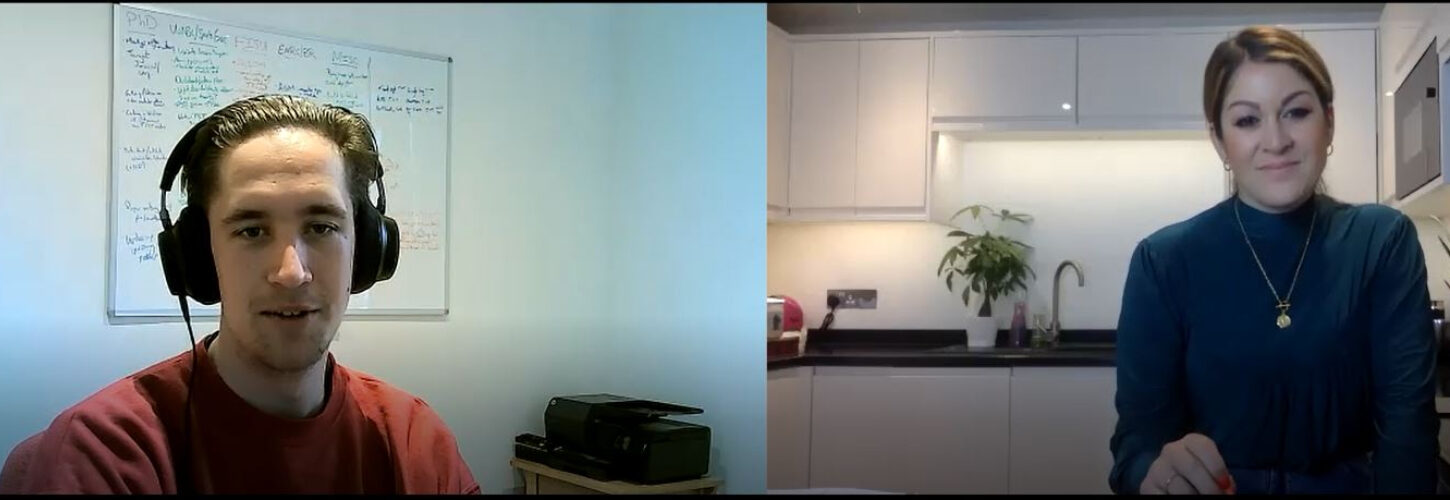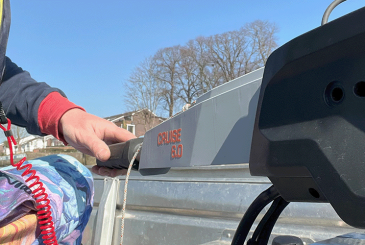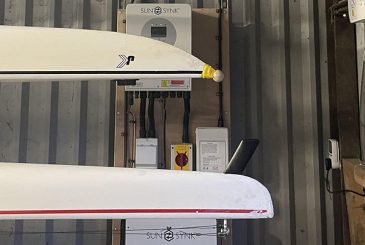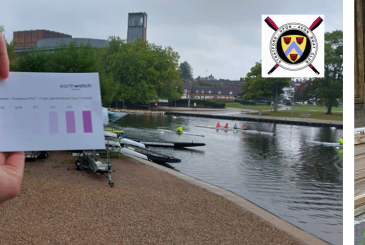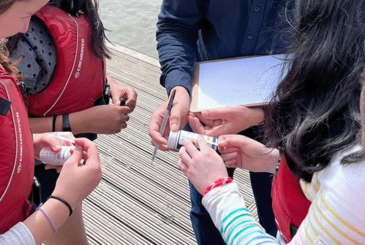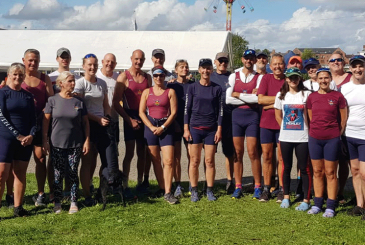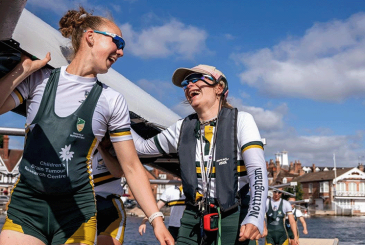University of Nottingham BC President Pete Boyes was named the BUCS Student Volunteer of the Year in 2020. The PhD student talks to Rebecca Charlton about university rowing, lockdown and the benefits of volunteering
Pete joined the University of Nottingham Boat Club in 2014 as an undergraduate and by 2016 had progressed to become its president. He has since enabled the club to double in size from 50 members to 124, along with implementing a number of significant and welcome changes.
This work deservedly secured him the BUCS Student Volunteer of the Year Award in 2020. He’s currently in the final year of his PhD and chats to Rebecca Charlton on Zoom amid a busy schedule.
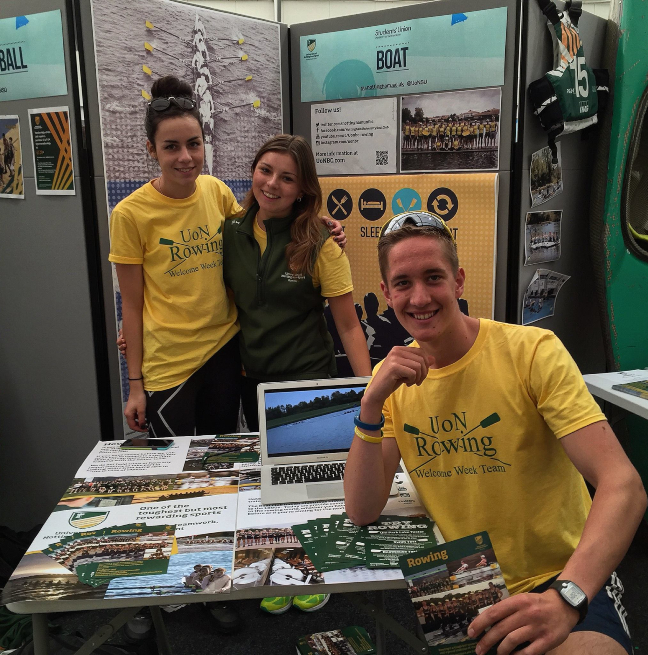
Rebecca Charlton: How did you discover rowing?
Pete Boyes: I started when I was at school, in year 11. I used to play a lot of rugby, so I decided maybe it was time for me to try another sport. My school rowed out of Stratford upon Avon Boat Club and I had a couple of friends who were involved too, so I thought I’d try it out.
I went to the first session and really enjoyed it, the coach was very supportive, and I suited the sport with my tall and gangly build! I found myself doing more and more rowing for the next three years and then it formed quite a large part of picking my university.
Rebecca: How did you progress to being so involved?
Pete: I fitted in quite well size-wise with rowing and the people were a lot more like me, rather than the much bigger guys in rugby! Becoming a volunteer started at school at the boat club – they asked if I wanted to be the rowing captain when I was in year 12 and the coaches encouraged me to get more involved to help to develop the club.
It was great, at that age, to be helping to change the club and then when I got to university more opportunities presented themselves and it snowballed from there.
Rebecca: What role has rowing played in your life?
Pete: At university I suddenly had coaches giving me a programme, people around me that wanted to train, and I really leaned into the structure that gave me. I think that structure is why I’m still in university – I did an undergraduate, a masters and now I’m doing a PhD and it all comes from the skills I’ve learnt doing university-level sport. It gives you a family away from home, which is something I really leaned into, coming from a large family.
“My name is on the award, but it’s really for everyone who’s helped me in the past decade”
Rebecca: How have you juggled it all?!
Pete: It’s been a steep learning curve in time management! My first year was probably my most sociable, but I think I found different ways of socialising – I found myself increasingly having teammates over to my house for dinner and training was my social life in a way. Hanging out at the boat club was enjoyable enough for me, save a couple of late nights and getting up the next morning for training and my degree! I was happy to pass on a few beers, really.
Rebecca: What did it mean to receive the Student Volunteer Award?
Pete: It meant a lot it and it honestly came as a shock. I never think I’m doing enough to deserve something like that – I know that I do quite a few things, but it never feels like work because it’s so fun to get involved with.
It was humbling to get the award and my first reaction really was to point to the fact that my name is on the award, but it’s really for everyone who’s helped me in the past decade. I really think the award reflects the amount of hours that other people have put in to me rather than the hours I’ve put in to the club or rowing.
Rebecca: Have you been able to celebrate?
Pete: Virtually! I guess we’ve had a bit of a reflection on the years we’ve had and it’s a nice reflection to look at where things were when I started. I think we’ve parked the full celebrations until we’re allowed to meet again in person, get a bit of a team photo and maybe a drink!
Rebecca: How have you coped with lockdown as a student?
Pete: It’s been very difficult and I think it’s the dual effect of my sport and my PhD both disappearing, or going online. I’m used to training, seeing friends and being in an office with colleagues and doing studies, so there is a lot of human contact every day and there was a significant and quick drop-off to seeing everyone on a screen.
So yeah, quite a significant impact – living in a box and occasionally going on a walk. It suddenly becomes surprisingly hard to motivate yourself to stick to a rigid schedule.
“More people want to row, which is fantastic”
Rebecca: It sounds like there’s been some positivity online with the British Rowing community?
Pete: We had the British Rowing Virtual Champs and BRIC Online which I was lucky enough to be put on the team for to be a race official and I think both gave great opportunities to rowers for motivation during lockdown. British Rowing did well to lean into that and the digital offerings to engage people.
Rebecca: What are some of your most memorable moments?
Pete: How long have you got!? I have so many memories around races, I have heightened emotions around racing with some of my best friends, whether on the winning or losing side of a close finish – they’ve stuck with me!
A very memorable experience was flying out to China to take part in the World University Regatta and it’s not something that when I arrived seven years ago I thought I’d be doing! To be given the opportunity was incredibly memorable, not just for the competition but for the culture and the people out there. There was a huge host of international universities there and it felt so out of the blue – we were so surprised we’d been invited!
“For the smaller clubs it could be hit and miss as to whether they’ll still be here in a few years’ time”
Rebecca: Can you tell us about growing the club?
Pete: I like to think it’s nearly an unrecognisable boat club now from when I started. It’s changed in nearly every way I can think – I will say it’s benefited from the fact that it’s not normal for a student club to have a president for five years.
It’s been great to see so many more people at university trying to do the sport and it’s almost reaching a capacity that’s stopping us grow more. More people want to row, which is fantastic.
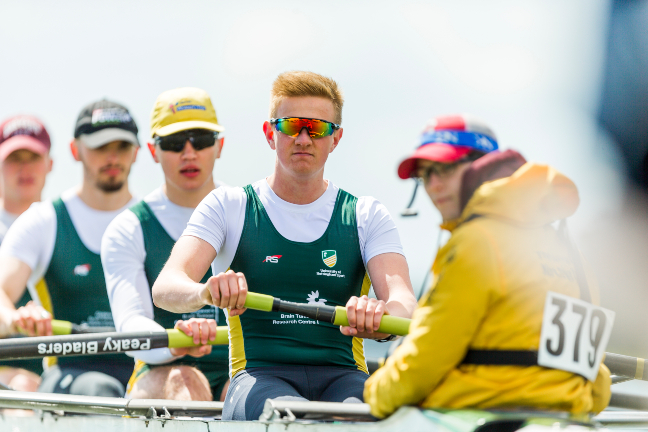
We’ve run some exciting fundraisers including cycling from Nottingham to Henley and the Race Against the Moon, which is Nottingham to London, and in combination we raised almost £6,000. We are reaching out and building our alumni network and hopefully we can build an environment where people want to give back.
Rebecca: What further support can British Rowing provide for universities?
Pete: There are a huge range of set-ups in the university scene, some that are led by students and who have little support from the university and they’re the people that possibly need the most support from British Rowing.
I’m lucky that Nottingham is a huge university and they have the resources to support a club like ours. Some universities can’t do that and those are the ones that British Rowing could really help and guide them towards funding, for example reaching out to the local communities, building relationships and learning how to bring new members into the sport and how to hold onto them. For the smaller clubs it could be hit and miss as to whether they’ll still be here in a few years’ time.
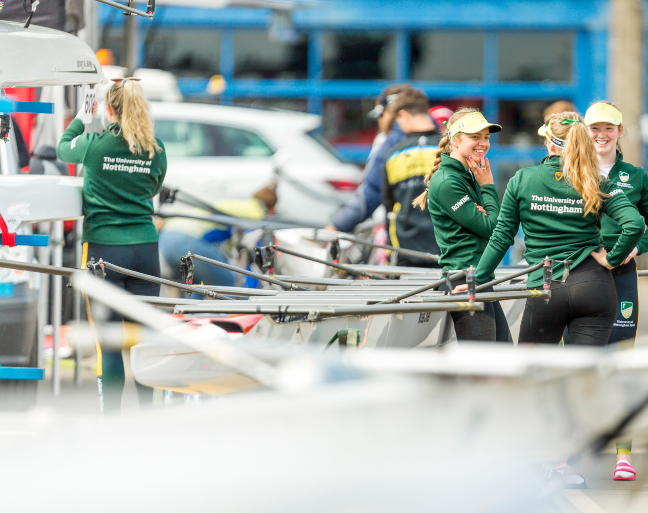
Rebecca: What tips do you have for student volunteers and aspiring ones?
Pete: Go for it! If you’re at university and you’ve got opportunities to get involved in sport or volunteering just lean into it and really engage.
The benefits are endless – you meet new people, make new friends and I guess on the more serious side, the skills that you develop through volunteering are incredibly valuable, not just within volunteering but outside when you go on to graduate.
It just takes a key couple of motivated individuals to really give a boat club momentum and you can make more of an impact for five to 10 years in the future. I think it’s the best thing that’s ever happened to me and I want more people to be able to do that.
Photos: Pete Boyes, Drew Smith


